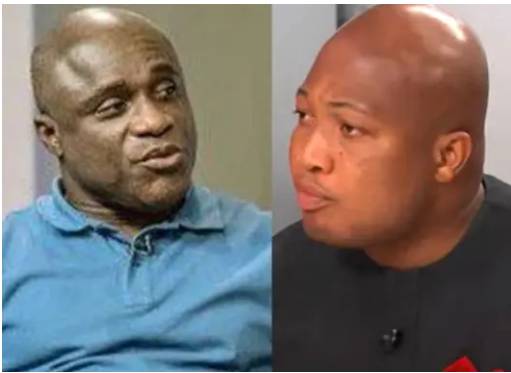North Tongu MP, Samuel Okudzeto Ablakwa, has expressed disappointment in the Commission on Human Rights and Administrative Justice (CHRAJ) for its recent decision exonerating Reverend Victor Kusi Boateng from allegations of holding a dual identity.
In a strongly worded critique, Ablakwa accused CHRAJ of failing to thoroughly investigate critical evidence from key national databases. Writing on Facebook, he claimed that the Commission overlooked significant inconsistencies in records from the Driver and Vehicle Licensing Authority (DVLA), the National Identification Authority (NIA), and the Electoral Commission (EC).
CHRAJ failed to assess the DVLA database, which confirms that Victor Kusi Boateng holds a driver's license under his name. Similarly, it ignored NIA records showing his Ghana Card was issued under the name Kwabena Adu Gyamfi, Ablakwa stated.
He also highlighted discrepancies in electoral records, pointing out that the cleric had two different voter ID cards issued in 2016 and 2020 under separate identities, with age discrepancies of ten years between the two documents.
Adding to his concerns, Ablakwa referenced a High Court ruling in July 2023, where a case brought by Rev. Kusi Boateng against the MP was dismissed. The ruling judge described the cleric’s conduct as bordering on criminality, further fueling the North Tongu MP’s argument against CHRAJ’s findings.
How does CHRAJ’s assertion that Victor Kusi Boateng possesses one passport in a different name (Kwabena Adu Gyamfi) with a different date of birth exonerate him from allegations of double identity? This report is a ridiculous whitewash, Ablakwa said.
He described CHRAJ's conclusions as a missed opportunity to uphold justice and called the report a blow to the Commission's credibility.
CHRAJ had earlier cleared Rev. Kusi Boateng of conflict of interest allegations, stating that he does not own two passports with differing names. However, Ablakwa maintains that the investigation was incomplete and failed to address the evidence he presented.
This controversy forms part of a broader debate over governance, transparency, and accountability in Ghana. Critics argue that robust, impartial investigations are essential for building trust in public institutions.
The North Tongu MP's critique has sparked public discussion, with some supporting his stance and others questioning his interpretation of CHRAJ’s findings.
This report is based on information from MyJoyOnline.com.


